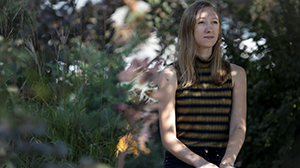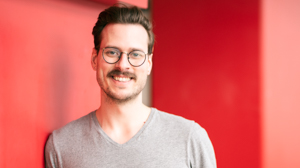- Future Students
- Current Students
- Faculty
- Staff
- Alumni
- Others
UofGH marks its 10th field study course on Indigenous mental health in northern Ontario
This year marked the 10th anniversary of a Psychology field course that brings University of Guelph-Humber students from Toronto to Moosonee and Moose Factory in northern Ontario to learn about the social determinants of Indigenous mental health.
Developed a decade ago by Christine Maybee and Nick Lazarus of James Bay Mental Health and Addictions, alongside UofGH Psychology Program Head Dr. David Danto, this course was designed to introduce students to residential school survivors, Elders, knowledge keepers, community members and mental health service providers on an experiential listening trip.
Featuring a focus on Cree knowledge, hospitality, resilience and tradition, the course has proven to be a transformational experience for many of the students – and faculty – who have taken part.
“In 2010, I could never have known the impact that this course would have on me,” said Dr. Danto, who has accompanied the students on all 10 trips. “I will never be able to fully express my gratitude for the friendships I have made on this journey. Thank you for your generosity, hospitality, understanding, humour, knowledge, wisdom and friendship.
“When the students return from Mushkegowuk territory, they are not only aware of the significance of the Omushkegowuk or People of the Muskeg as stewards of the land since time immemorial but also, as they return to our campus in Toronto, that they are on the territory of the Mississaugas of the Credit. As they learn about the six-season cycle and the Moose River, they also understand that the UofGH is located along the Humber River Watershed, which provided a passageway for Anishinaabe, Haudenosaunee, and Wendat Peoples between the Ontario Lakeshore and the Lake Simcoe and Georgian Bay regions.
“Thank you for allowing us to listen, learn and for giving us the opportunity to develop as people and professionals on our paths toward reconciliation.”
Gaining perspective
When she first heard from Dr. Danto about the idea of collaborating on a course, Maybee said she was intrigued by the opportunity to help UofGH students better understand her community, culture and point of view.
“To be able to share our experiences and to be able to teach the students without sugar-coating things was important. We really wanted to bring ourselves and our experiences to the students so they could carry that with them. By seeing and touching and feeling our experience, we thought that the students’ understanding would be broader.
“The connection was the most important thing for us. I really wanted to help students understand the First Nations way of life and to see first-hand what it’s really like.”
Judging by the impassioned testimonials from students who have taken the course, she accomplished that – and more.
“It’s not an overstatement to say that the Field Study course with the University of Guelph-Humber to Moosonee and Moose Factory changed the course of my life, career, and sparked my journey as an ally working with and learning from Indigenous communities in Canada and internationally,” said alum Sarah Lim.
“Before this trip, my understanding of Canada, its history, and my place in society was crafted from a colonial narrative. Through this trip, I learned about the Indigenous history of Turtle Island (North America), the resiliency of Canada’s Indigenous peoples, and the current reality of Indigenous communities in northern Ontario. Being able to hear from Elders, community leaders and the youth of Moose Cree First Nation showed me the diversity of knowledge and cultural richness within its peoples.
“The Field Study course was an invaluable platform to begin meaningful discourse on Indigenous cultures and traditions, reconciliation, and allyship. The learning from the Field Study course continues to find relevance in the current context of global Indigenous revitalization, and I am grateful that this platform continues to grow and provide opportunities for students to have their learning come to life.”
A lasting impact
For some students who were particularly moved by their experience, it altered their professional trajectory. Lim, for example, previously shared with us how she’s spent years since graduation travelling the world working as a social worker in Indigenous communities.
She’s not alone among those students who say the course changed them.
“My journey and experiences with the Indigenous community is not over just because the course is,” vowed alum Chelsea Heyman.







